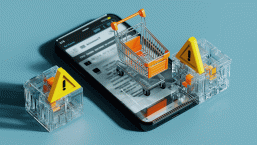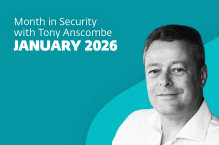That's right, 5 simple steps worth a combined total of $20 USD!
There's a reason why legitimate companies like ESET are members of the Anti-Spyware Coalition (ASC) and other companies are not. It has to do with quality and integrity. This is not to say that companies who are not member lack those attributes, but rather, that if your vendor is an ASC member you don't have to worry about buying into a scam.
Now for your $20 of anti-spyware Follow these easy instructions
1) Open up Internet Explorer
2) Choose the Tools Menu
3) Choose Internet Options
4) Press the button that says "delete cookies"
5) Click OK
They you go, isn't that worth $20 dollars? No? It isn't? Are you calling the folks at sleazy anti-spyware companies' liars?
Tip, never trust an anti-virus or anti-spyware product that scans for free but will not clean until you pay. There may be a few trustworthy companies that engage in this practice, but I believe you have better odds with Russian roulette.
ESET, and most other companies I consider to be legitimate, does not condone or attend the school of "scan free - pay to clean" sleazy marketing. If you download a 30 day trial version of NOD32 you will not be charged to clean what was found. After the 30 days are up it is up to you to decide whether or not we have earned your business with honest performance. Anti-virus, anti-spyware, and anti-Trojan products that cannot earn your business with quality wouldn't dare let you try a functional version of their product without payment up front, but ESET does.
My mom saw an ad on TV for company (using a traffic sign as part of its name) and decided to give their product a test drive. When the "traffic-sign" reported infections and *wanted money* to clean them she checked with me.
I did a little investigating. At first I thought that this product had probably planted malware in order to detect it. Some companies are actually sleazy enough to do that. Obviously that would have been too much work for this developer as they took the far easier route - let the user browse the internet and then detect cookies! ( $2 hint - a cookie-detector batch file is really easy to write)
I took a clean VM session with Windows XP SP2 and installed and ran the product. My system had a clean bill of health. Next I visited my favorite airline site, Google, half a dozen legitimate anti-virus web sites, and the Microsoft home page. I re-ran the "anti-spyware" program and I was greeted with a page with the following bold statement:
Warning: your machine is Infected!
Click here to find out how you can cure your infections.
There was also a "Cure Now" button that required $20 to delete two cookies reported to be the infections. Yes, that is right, they want $20 to delete 2 cookies. I just taught you how to do that for free in 5 easy steps! (Ok, skip the $2 I'll give you the batch file for free if you want it)
One of the detected cookies was from Double-Click.net. Here is the first part of the cookie: "test_cookie CheckForPermission doubleclick.net/"
This is DoubleClick cookie is not spyware, this is a cookie designed to respect a users privacy decision.
The technology behind this particular product is so weak they can't even scan for plain text in a well known cookie. Maybe the technology isn't that weak, perhaps they would just deceive you about spyware and take your money.
The DoubleClick cookie came from visiting a prominent anti-virus vendor's web site. Rest assured that I have informed the vendor that this vendor is accusing them of installing spyware on user's computers.
The second cookie was from AvenueA, and also was not spyware. There certainly was no infection by any stretch of the imagination and nobody with a functional definition (except monetarily so) of spyware calls cookies such beasts.
I deleted the cookies and went to the Microsoft home page. As soon as I did that a cookie was placed in temporary internet files. I ran a scan with and this product now accuses Microsoft of planting spyware on my computer. (Oh stop with the cheap jokes already). I let some friends of mine at Microsoft know that this company is accusing Microsoft of planting spyware on people's computers.
The "anti-spyware" product said, in no uncertain terms, that my computer was infected and was ready to charge me $20 to delete 2 cookies. The actual report screen, hidden behind the scam page indicated that there were infections, but then named the "viruses or threats" as "possible infections". Why are they saying in bold print that my machine is infected when it obviously is not and may only potentially have objectionable cookies?
To add insult to injury, when you visit this vendor's site they drop a cookie that they fail to detect. Can you say "double standard"? How about "two faced"?
If you are considering an anti-spyware solution I encourage you to make sure that the company you do business with is listed at http://www.antispywarecoalition.org/about/index.htm and/or at http://www.westcoastlabs.org/cm-av-list.asp?Cat_ID=8
If you want a reputable anti-virus solution, look for companies at https://www.icsalabs.com/icsa/product.php?tid=dfgdf$gdhkkjk-kkkk
http://www.westcoastlabs.org/cm-av-list.asp?Cat_ID=1
Also sign up for a free account at https://www.virusbtn.com/register/index and check out who consistently earns the VB 100% award. NOD32 leads the pack with 36 as of this writing.
If you want a reputable product that can handle Trojans, look at
http://www.westcoastlabs.org/cm-av-list.asp?Cat_ID=3 you will find ESET NOD32 listed at *ALL* of these places.
Randy Abrams
Director of Technical Education.
ESET LLC.




